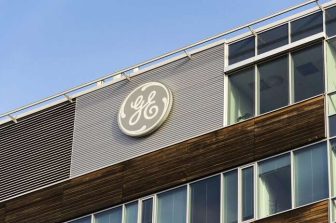Renowned electric vehicle (EV) manufacturer Tesla (NASDAQ:TSLA) has been a wealth generator for long-term investors, boasting a staggering 18,000% surge since going public in mid-2010. With a market capitalization of $762 billion, Tesla is the most valuable global EV manufacturer. Despite a robust 90.9% increase in 2023, the stock trades 42% below its all-time highs, leading some analysts to project potential further declines. Let’s explore whether investing in Tesla at this juncture is a prudent decision.
Tesla Grapples with a Complex Macro Environment
In recent months, Tesla has contended with a challenging macro environment characterized by escalating interest rates, heightened inflation, and supply chain disruptions, collectively contributing to a decrease in consumer demand. The third quarter of 2023 saw Tesla report sales of $23.35 billion and adjusted earnings of $0.66 per share, falling short of Wall Street’s revenue and earnings estimates for the first time since 2019.
While Tesla achieved a 9% year-over-year increase in sales during Q3, its earnings contracted by 44%. Factors such as elevated product costs at new factories, leading to a 22% decline in gross profits, and a substantial 60% year-over-year surge in research and development (R&D) spending, impacted the company’s operating margin, which dropped to 7.6% from 17.2% in the prior-year period.
A combination of rising costs, significant R&D investments, and other growth initiatives resulted in a notable 74% decline in Tesla’s free cash flow, ending the September quarter at $848 million.
Factors Influencing Tesla’s Stock Price
Once a first-mover in the EV market, Tesla is now facing formidable competition from established automakers like Ford, General Motors, Toyota, and Volkswagen, as well as new entrants such as Nio, Lucid Motors, and Rivian. Despite this increased competition, Tesla maintains a substantial market share, accounting for approximately 50% of the U.S. EV market and nearly a fifth of global shipments.
However, Tesla has responded to economic challenges by reducing vehicle prices, potentially impacting its historically premium valuation. The company pins hopes on its Cybertruck as the next significant driver of revenue growth, although production delays have led to concerns about near-term cash flow challenges.
Analysts Target Price and Market Sentiment
Analysts tracking Tesla anticipate a rise in sales from $81.5 billion in 2022 to $109 billion in 2024, but adjusted earnings are projected to contract from $4.07 to $3.56 during this period. With TSLA stock trading at seven times forward sales and 67 times forward earnings, it carries a premium valuation.
Out of 26 analysts, seven recommend a “strong buy,” two suggest a “moderate buy,” 14 advocate a “hold,” and three advise a “strong sell.” The average target price for TSLA stock is $237.68, slightly below the current trading price. However, Roth MKM presents a bearish outlook with a Street-low target price of $85, indicating a potential downside of 64%. Analyst Craig Irwin emphasizes this target alongside a “hold” rating, challenging the assumption that Tesla’s premium valuation hinges on the belief that competitors’ EV models won’t gain traction over the next year.
Featured Image: Pexels















